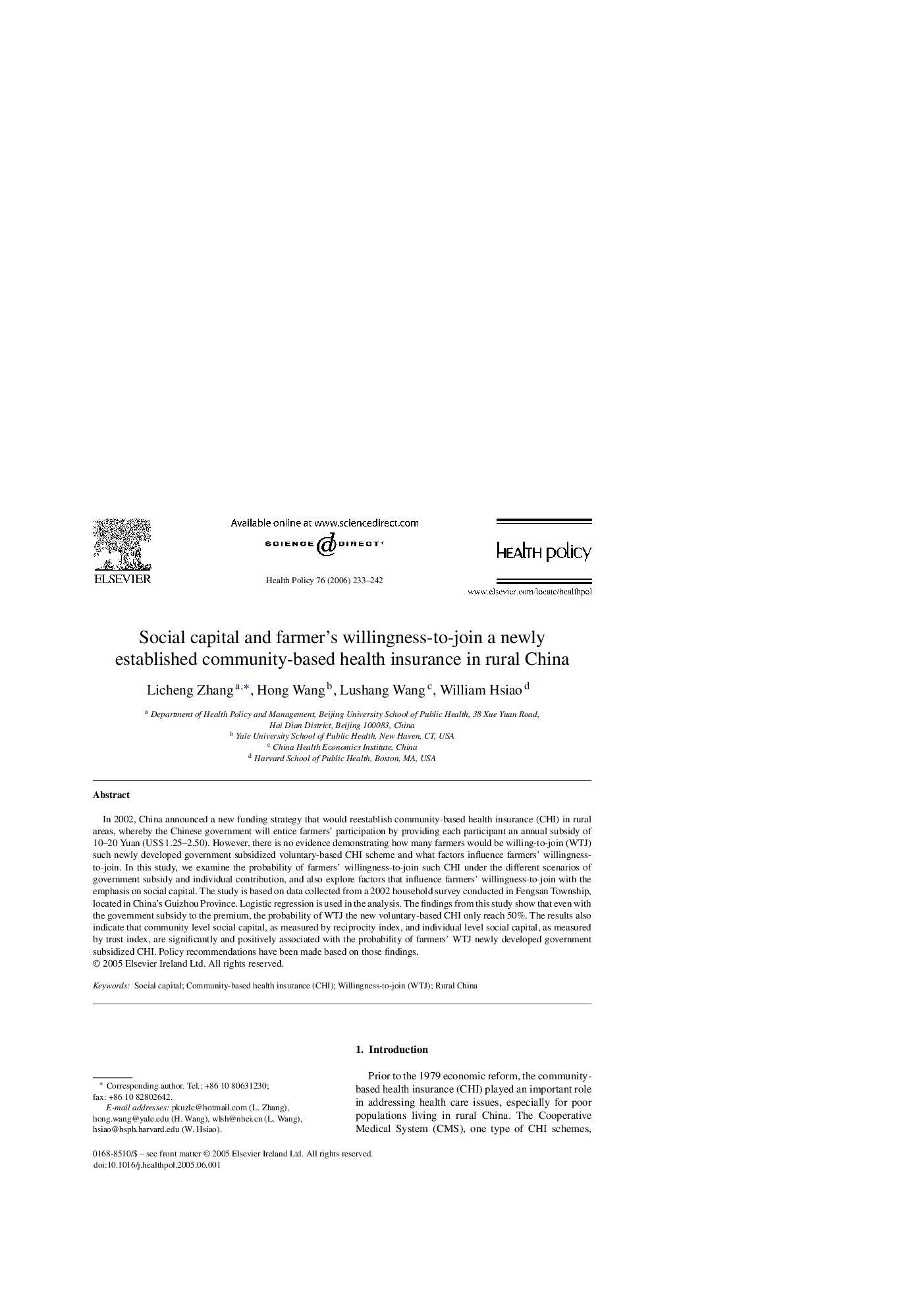| Article ID | Journal | Published Year | Pages | File Type |
|---|---|---|---|---|
| 4199219 | Health Policy | 2006 | 10 Pages |
In 2002, China announced a new funding strategy that would reestablish community-based health insurance (CHI) in rural areas, whereby the Chinese government will entice farmers’ participation by providing each participant an annual subsidy of 10–20 Yuan (US$ 1.25–2.50). However, there is no evidence demonstrating how many farmers would be willing-to-join (WTJ) such newly developed government subsidized voluntary-based CHI scheme and what factors influence farmers’ willingness-to-join. In this study, we examine the probability of farmers’ willingness-to-join such CHI under the different scenarios of government subsidy and individual contribution, and also explore factors that influence farmers’ willingness-to-join with the emphasis on social capital. The study is based on data collected from a 2002 household survey conducted in Fengsan Township, located in China's Guizhou Province. Logistic regression is used in the analysis. The findings from this study show that even with the government subsidy to the premium, the probability of WTJ the new voluntary-based CHI only reach 50%. The results also indicate that community level social capital, as measured by reciprocity index, and individual level social capital, as measured by trust index, are significantly and positively associated with the probability of farmers’ WTJ newly developed government subsidized CHI. Policy recommendations have been made based on those findings.
